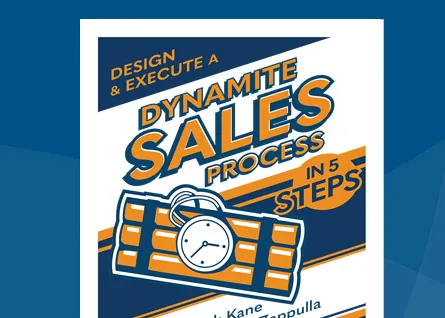The Truth About the Exaggerated Sales Pitch
Not long ago, just as the world was undergoing Olympic fever, four U.S. swimmers from the men’s team, including gold medalist Ryan Lochte, went for a celebratory night on the town in Rio. It was quite a night, apparently, one that ended in reports that they’d been victims of a robbery, at gunpoint. As the world knows by now, that wasn’t exactly what happened—Lochte and the others had a bit too much to drink, and maybe or maybe not vandalized a gas station bathroom, which led to an altercation with the property owner. Parsing his words carefully to the media, Lochte later said that he “over-exaggerated.”
Unless you’ve been locked in a gas station bathroom with no wifi for the past month, you’ve heard this story rounding the news cycle. Yet we bring it up now because we live in a time when a lot of people, from politicians to coworkers, have a tendency to stretch the truth—either outright lying or just “innocently” exaggerating.
It’s a trending social behavior, and sales professionals do it too. Who in the sales world is not guilty of sometimes exaggerating sales, inflating capabilities and past performance; maybe even padding out our resumes with little white lies? Sometimes we even believe those things we say that would otherwise fall into the category of not completely accurate. Look at Lochte—maybe he didn’t want to lie but just couldn’t bring himself to tell the truth, or maybe there was a language barrier, or maybe fogginess from too much alcohol prevented him from fully knowing what had happened. Whatever the reason may be, Lochte and his teammates definitely hurt themselves. One of them had to pay an $11,000 fine in Brazil, and Lochte has lost some lucrative endorsements—don’t look for his face on a cereal box anytime soon. And, of course, embarrassment on a global scale is the most profound way they’re paying.
Facing Down Our Reputation
More often than not, our exaggerations go unnoticed—in this busy world, there are a lot of truths that don’t get fact checked. But we’re not children, or drunken athletes looking for something to break besides world records. We need to strive to be truthful. Because, let’s face it, as salespeople we automatically have a reputation for being less than honest. It’s a legacy carried over from all those who’ve used desperate and less than truthful words to push sales forward, and it’s perpetuated in popular culture’s idea of the proverbial sleazy sales reps.
The Trust Factor
To earn trust as sales professionals, we must begin by better managing customer expectations, and that means creating an atmosphere of honesty that our clients can feel—and come to rely on. Often you encounter customers who are keen to find out about a product or service you have to offer, but after they outline their goals and objectives, you may find that actually you don’t exactly have the solution they need. Still, your tendency might be to say, “Sure, I can provide that! And I can get it to you when you need it!” No matter how much you may want to believe that, the reality is you might not have the expertise to make good on your claim. Before long the truth surfaces: You’re not equipped to provide the customer with what they require. In turn, they might spare your feelings with the not altogether true statement, “It’s just not a good fit.” Now you’ve wasted the customer’s time and resources, and you’ve “bathroom vandalized” your own time and resources. What’s more, like Lochte, you’ve bruised your reputation.
“Trusted advisor” is a term we use frequently here—putting the emphasis on trust—because we see it as the gold standard for sales professionals. As opposed to a sales rep playing the whack-a-mole equivalent of quota hitting, being a trusted advisor means you make claims and promises that customers can trust—because you can actually deliver on them. Good examples of this, on a much larger scale, are companies like Apple and Amazon, who work from the starting point that they’re going to please customers by “under promising and over delivering,” rather than over promising and under delivering. To put it another way, what the best, most trusted companies do is wow the customer with stellar service.
The upshot here is that you should avoid exaggeration, over-exaggeration, fibbing, stretching the truth, and definitely out-and-out lying. Instead be a trusted advisor, which includes positioning your products and services in a positive way. Err on the side of honesty. Know that no matter how honest you may have been in the past, your current exaggerations could sink you.
Try Finesse
All of that being said, sometimes you’ll have to come at your “sales pitch” with a little spin and angle; a little finesse. That’s positioning; that’s problem-solving; that’s being positive and ushering in a perception for the customer by demonstrating all the ways your solution will work for them. There’s nothing wrong with convincing the customer, just as long as you can back up your claims—because, as those four American Olympians showed the world, you can’t swim yourself out of the shallow waters of exaggeration.

- Account Planning (11)
- Awards (50)
- Client Testimonial (37)
- Personal Branding (19)
- Podcast (11)
- Research (68)
- Sales Career Development (85)
- Sales Coaching (154)
- Sales Consulting (133)
- Sales Culture (164)
- Sales Enablement (340)
- Sales Leadership (108)
- Sales Management (242)
- Sales Negotiation (16)
- Sales Prospecting (124)
- Sales Role-Playing (18)
- Sales Training (229)
- Selling Strategies (255)
- Soft Skills (67)
- Talent Management (92)
- Trusted Advisor (27)
- Virtual Selling (41)
- Webinar (10)





























